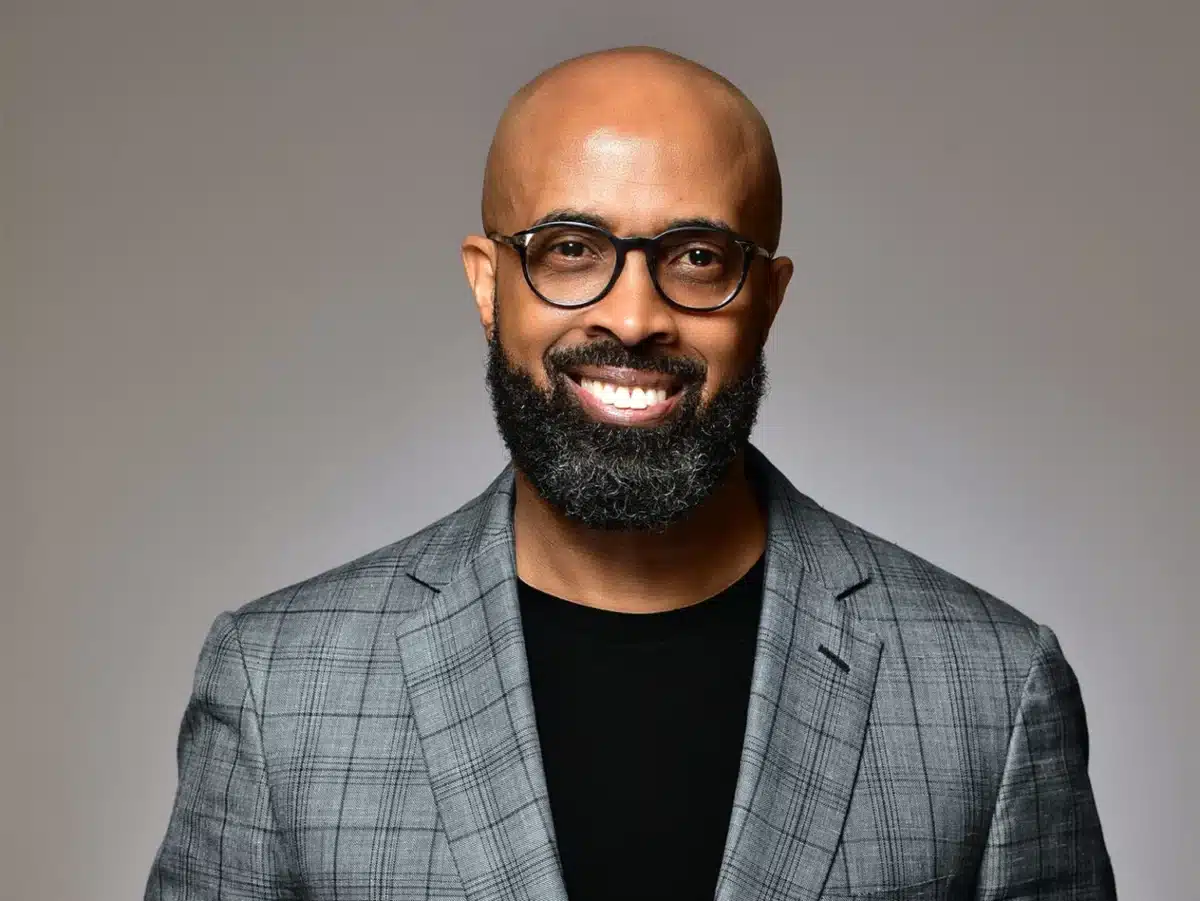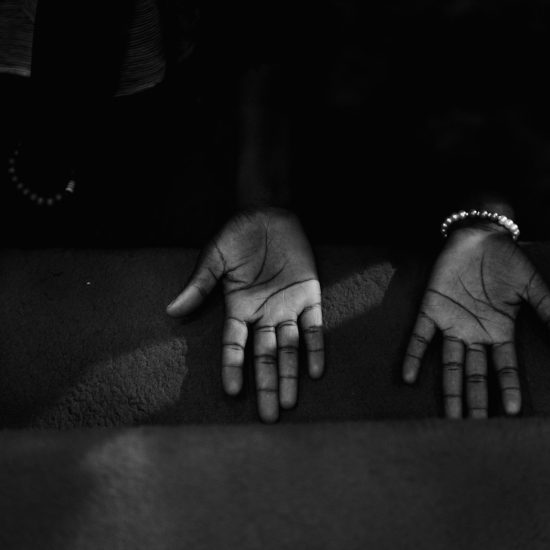
(RNS) — The Rev. Frederick D. Haynes III, who has led a Black megachurch in Dallas for 40 years, has just been chosen to take the place of the Rev. Jesse Jackson, who was president of Rainbow PUSH Coalition for more than five decades.
Like Jackson, the senior pastor of Friendship-West Baptist Church has been known for preaching and protesting, following in the footsteps of role models like the Rev. Martin Luther King Jr.

The Rev. Frederick D. Haynes III. Courtesy photo
And Haynes, who is triply aligned with the National Baptist Convention, USA, Progressive National Baptist Convention and American Baptist Churches USA, also has made appearances across the country to discuss religious, political and business issues. After meeting briefly with the dozen or so staff of the Chicago-based coalition, whose annual convention concluded Wednesday, he spoke in Washington to U.S. Black Chambers, Inc., a Black business organization.
The son and grandson of Baptist preachers, Haynes, 62, talked by phone with Religion News Service about succeeding his mentor, “woke preaching,” and whether marching is still effective for a new generation.
The interview was edited for length and clarity.
What was your first thought when the Rev. Jesse Jackson asked you to succeed him?
Wow. I was blown away and greatly honored and humbled at the same time.
Rainbow PUSH Coalition has some of the same aims of other organizations including the Conference of National Black Churches, National Action Network, and the Samuel DeWitt Proctor Conference, and you are a board member of all of them and a co-founder of the last one. Do you intend to see the coalition have a different role than these other organizations that also include many Black ministers?
Rainbow PUSH does have and will continue to have a faith-based approach to issues of justice. And one of the main differences in the lane of Rainbow PUSH has been the fight for economic justice that started with the roots of Rainbow PUSH in Operation Breadbasket. And so that particular fight we will continue to do in the unique way that Rainbow PUSH has done.
The beautiful thing about the organizations that you have referenced, the Proctor conference, National Action Network and the Conference of National Black Churches, is that because of the relationship, it will simply expand the coalition. And we, I believe, can get more work done together than we have apart even though there will be those areas in our respective organizations where we will, of course, continue on our respective missions, according to our different strategies.
There are some topics that the coalition has traditionally worked on such as voting rights and economic justice, as you just mentioned. Is there a particular area of concern you hope to add to its agenda?
Without question, environmental injustice plagues not only our communities but the planet. Climate change has our world on fire, almost literally. And on the frontlines, being most victimized by climate change are communities of color, Black and brown, Indigenous communities that often are in proximity to the kinds of emission-producing apparati that harm the environment and create the kind of climate that those communities have to suffer from and inhale. We will be involved in the fight to protect the environment, but at the same time we’re especially going to focus in on how climate change fueled by environmental injustice has done such harm to the most vulnerable communities. When we think about the water contamination from Flint (Michigan) to Jackson (Mississippi) to West Helena, Arkansas, those are vulnerable communities, and Rainbow PUSH will be on the frontlines of that fight for environmental justice.
How will you juggle leading the Rainbow PUSH Coalition and maintaining your role as a senior pastor at Friendship-West Baptist?
I don’t know that it will be that much of a new juggle because I’ve been blessed to pastor Friendship-West for 40 years, and we have built a solid infrastructure. I have a great staff, a wonderful church, quite supportive. And the work I’ll be doing at Rainbow PUSH is, in reality, a larger platform of work I’ve always been doing.
Will you be preaching less, for instance, even as you’ve been studying preaching and sacred rhetoric at Indianapolis’ Christian Theological Seminary?
In light of the fact that I have invested in this Ph.D. program and I’m in the process of doing the dissertation proposal, which will lead to the dissertation, there’s no way I’m going to preach less having done all this work on such a project.
What’s your dissertation going to be on?
I am proposing doing what I’m referring to as a study of woke preaching. Woke is under attack right now. And yet, there is a history in the Black church tradition and in traditions where social justice is a part of the mission and ministry of the church and community of preaching in a way that attacks injustice in all of its forms. I’m looking at doing woke preaching, but especially in the context of the Black pulpit tradition, which has oftentimes married the fight for justice with a sense of an African consciousness or an Afrocentric flavor.
Rainbow PUSH Coalition was more well-known years ago for Jesse Jackson’s work. Do you think it has grown less effective over time?
I think it’s as effective. It’s just that with his health challenges in recent years, it is not as well known. They have continued the work from the headquarters in a remarkable fashion. But Jesse Jackson is larger than life — iconic personality. Wherever he would go, the news would go, and so Rainbow PUSH would benefit from the publicity surrounding his literally being everywhere. Unfortunately, with his health being compromised, he has not been able to travel as much, but, beautifully, the work has continued at Rainbow PUSH.
You have spoken of being a mentee of Reverend Jackson and a student of the Rev. Martin Luther King Jr., both of whom were known for civil rights marches and protests. And you have protested at the U.S. Capitol and in your own state of Texas. Do you think that marches continue to be effective or are you looking to new or additional ways to galvanize young people as you seek these key issues we’ve been discussing?
Where marches are appropriate, we will definitely do marches; where picketing and standing with the least of these is appropriate, we will do just that. We see in Hollywood right now that the screen actors as well as the writers are on the picket line as well as refusing to work. That is a dramatic way of exposing the injustice they are experiencing. Those kinds of things, as far as I’m concerned, remain relevant, but it will always be a march with a mission, protesting with a purpose, and picketing with a purpose, but at the same time taking advantage of the resources of technology that perhaps we didn’t have in the ’60s and ’70s.
Is there a singular piece of advice you have received from Jesse Jackson, either over the weekend or longer ago, that will stay with you as you start this role?
Jesse Jackson has been a mentor for quite some time, so I can’t say there’s a singular piece of advice because he has given me so much. It’s almost as if I have multiple choice. But he’s given me advice about leadership. He says it’s one thing to give a speech that’s great. It’s another thing to engage in action that makes a difference. And that’s the most recent thing he shared with me. And I’m really holding on to that. Because we have a lot of great speech making, and if it’s not accompanied by action, things don’t really change. And he often says that Dr. King — we honor him not so much because he was such an eloquent speaker, but because he actually changed the country as policies and laws were changed. So that sticks with me in a singular fashion.






